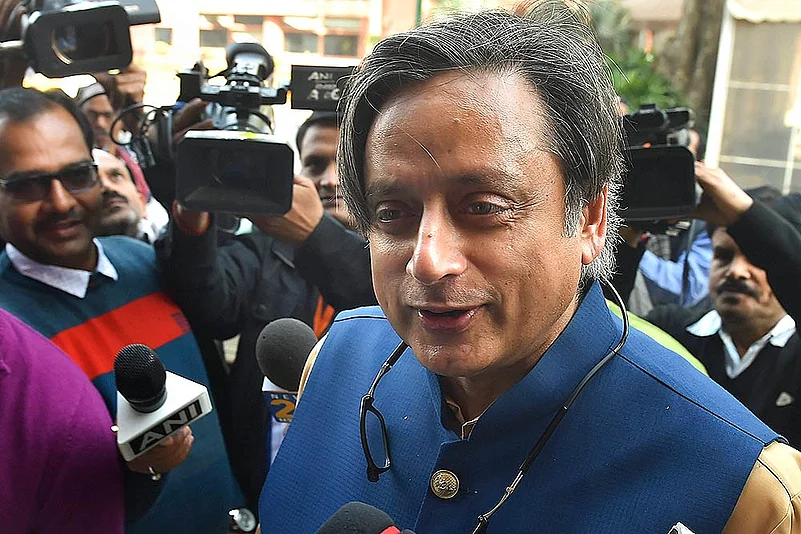After almost all exit polls predicted a comfortable majority for the Narendra Modi-led NDA government, senior Congress leader Shashi Tharoor on Monday rejected the predictions, saying he would wait till May 23 for the "real results".
"I believe the exit polls are all wrong. In Australia last weekend, 56 different exit polls proved wrong. In India many people don't tell pollsters the truth fearing they might be from the government. Will wait till 23rd for the real results," Tharoor tweeted.
In another tweet, Tharoor wrote, "Actually they CAN all be wrong, as Australia (a much smaller and less diverse country than India) showed us last weekend. But you're right that we are all better off waiting for the 23rd than wasting our time in empty debate about these imaginary numbers."
Advertisement
What had happened in Australia?
Australia's conservative government held on to power in the national elections, thanks to a highly effective negative campaign warning voters against the centre-left Labour Party's large policy reform agenda, analysts say.
Labour-led every opinion poll in the two years prior to Saturday's election but fell well short of a parliamentary majority after the vote, in a surprise result for the ruling Liberal-National coalition.
A Nine-Galaxy poll, released shortly before the voting stations, closed in the east of the country showed a victory for the Labor party and Liberal Party-led coalition losing its bid for a third three-year term.
Advertisement
The poll showed the Labor winning as many as 82 seats, beating the ruling Coalition.
On Friday, media reports also endorsed Labor leader Shorten as having the best chance to end a "cycle of instability" in Australian politics.
Before elections, the coalition held 73 seats, while the Labour had 72 in the House of Representatives.
According to last week's Newspoll survey, even though Labor took the swing in its favour, the leader approval rating favoured Morrison, with 45 per cent saying he would make a better prime minister as compared to Shorten.
How did they get it so wrong?
On Saturday, Labor was ahead 52-48 in Newspoll; 51.5-48.5 according to Ipsos; and Galaxy's exit poll put Labor ahead 52-48 - just minutes before voting closed, reported Daily Mail.
"When you look at the final polls which were obviously the benchmark we all use, most of the polls underestimated the Coalition vote and overestimated Labor. That’s just a fact," David Briggs, the managing director of survey firm Galaxy, told Daily Mail.
The failure of the polling companies to get the right result has sparked calls for regular surveys such as Newspoll to be wound back, especially given both Tony Abbott and Malcolm Turnbull were axed largely on the back of poor poll ratings.
Turnbull justified seizing the top job in 2015 by pointing out Abbott had lost 30 successive Newspolls. Three years later, he was ousted himself after losing 38 straight Newspolls.
Advertisement
The polls have accurately predicted election results in the past - so why did they get it so wrong in this election?
As the election results rolled in on Saturday, the ABC's election guru Antony Green said the death of the household landline was to blame for the wrong polls.
"Polling in Australia has a really good record, but what people have forgotten in the past four years is they've totally changed their methodology," Green told Daily Mail.
"Polling used to be dominated by running from the electoral roll and doing random samples based on ringing up landlines.
"Now landlines have disappeared and therefore using landlines is no longer a reliable estimate."
Advertisement
He said pollsters were making random calls to mobiles and it then 'gets very hard to determine what sample you're getting," Daily Mail quoted Green.
"I think that's what the problem is, they are having difficulty trying to get a representative sample, and they're all wrong.
"The only other alternative is they were getting a result like this, and nobody believed it and they got a result like this," he added.




















